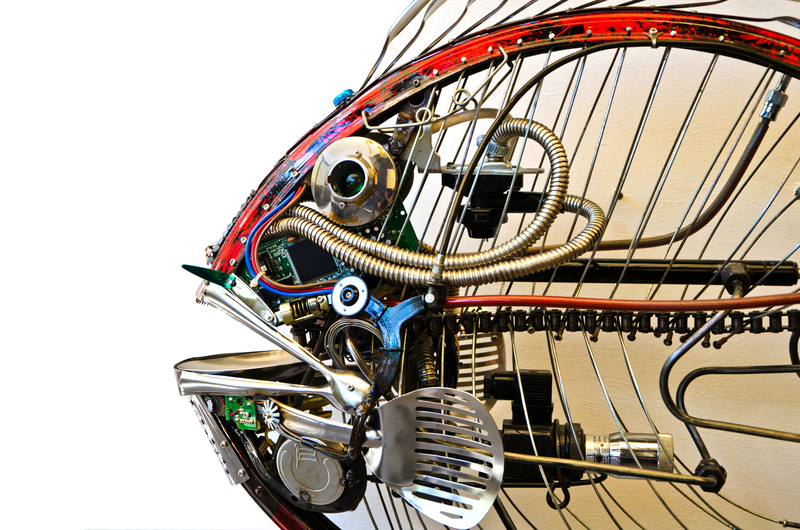Turning Old Cookware into New Opportunities Through Recycling
Every kitchen enthusiast knows how beloved cookware can grow old, damaged, or simply outdated over time. But did you know your old pots and pans can begin a new journey beyond your kitchen? Turning old cookware into new opportunities through recycling isn't just about eco-friendly waste management; it's about reimagining the lifecycle of cookware, supporting sustainability, and even sparking creativity and business opportunities.

Understanding What Constitutes 'Old Cookware'
Before diving into the intricacies of cookware recycling, let's identify what counts as old or unwanted cookware:
- Outdated pans and pots that have lost their non-stick ability
- Damaged bakeware such as warped trays or rusted cake tins
- Broken handles or lids that make use unsafe
- Mismatched sets left after replacements
- Non-functioning appliances such as electric skillets or slow cookers
Instead of letting these items clutter your cabinets or--worse--end up in landfills, discover the wealth of recycling opportunities for cookware available to you.
Why Recycle Old Cookware?
Recycling old cookware is a vital practice with broader implications than most realize. Here's why this matters:
- Environmental Impact: Old cookware, especially those made of metal, can take hundreds of years to break down in landfills. Recycling minimizes landfill waste and preserves resources.
- Resource Recovery: Recycling enables recovery of metals like aluminum, steel, and copper, which are crucial raw materials for new products.
- Energy Savings: Manufacturing items from recycled metals saves tremendous energy compared to using virgin ores.
- Economic Opportunities: The recycling industry creates jobs and supports circular economies.
Thus, repurposing old cookware isn't just about clearing your kitchen--it's a step toward a more sustainable and opportunity-rich future.
Types of Cookware and Their Material Value
Cookware comes in various forms and material compositions, each with unique recycling pathways:
- Stainless Steel: Highly recyclable, valuable, and commonly accepted at scrap yards.
- Aluminum: Lightweight and in demand; aluminum pots and pans are excellent for recycling.
- Cast Iron: Heavy, durable, and fully recyclable, though at specialized facilities.
- Copper: Premium value for scrap, but less common in kitchens today.
- Non-stick/Teflon-Coated: Recycling can be challenging due to coatings; specialized facilities recommended.
Pro Tip: Remove any plastic, rubber, or wooden handles before recycling, or consult the recycling center for guidance.
Step-by-Step: How to Recycle Old Cookware
1. Assess Your Cookware
Determine if your pots, pans, or utensils are simply worn, broken, or still usable. Some items could be donated or upcycled rather than recycled.
2. Separate Materials
Cookware recycling is simplified when you separate by material (aluminum, steel, copper, etc.). Remove non-metal parts as much as possible.
3. Locate a Local Recycling Center
Contact your local recycling facility or scrap metal yard and ask if they accept household cookware. Some municipal programs accept it curbside, but many require drop-off at specialty locations.
- Search online directories like Earth911 or local government websites.
- Call ahead to confirm item acceptance and drop-off procedures.
4. Explore Retailer Take-Back Programs
Many larger retailers, such as Best Buy, Williams Sonoma, or IKEA, offer take-back or recycling initiatives for old cookware and small appliances. Inquire at the point of purchase or checkout their websites for current programs.
5. Prepare for Drop-off
Ensure your pre-loved cookware is clean, handles removed (if possible), and sorted by type. Label boxes for ease at recycling centers.
Creative Upcycling: Breathe New Life into Old Cookware
Recycling cookware isn't the only route--upcycling opens a door to imaginative new uses and income opportunities. Here are some creative ways to repurpose old pots and pans:
Garden and Home Decor
- Planters: Drill drainage holes in old pots or colanders and use them as stylish garden planters or herb gardens.
- Wall Art: Paint or mosaic old pans and hang them as vintage art pieces in your kitchen or yard.
- Bird baths or feeders: Upturned lids or bowls make excellent garden features.
Organizational Solutions
- Desk Organizers: Deep pots make great holders for pens, tools, or kitchen utensils.
- Storage Baskets: Use wire baskets or oven racks for creative home storage.
Functional Furniture
- Lamp Bases: Stack and weld old pans or mixing bowls to create unique lamp holders.
- Side Tables: Large, stable pans or pots can form quirky table bases.
Share your upcycled projects on social media--many find value in tutorials, and your creativity may inspire new ventures or small businesses!
Turning Recycling into Business: Earning from Old Cookware
Recycling old cookware for profit is an attractive prospect, especially given the value of metals like copper and aluminum. Here are ways to turn unwanted kitchenware into new opportunities:
- Scrap Metal Selling: Gather old metal cookware and sell as scrap to local yards. Prices fluctuate; copper is generally most lucrative.
- Flea Markets and Online Platforms: Upcycle or refurbish cookware and sell on sites like Etsy, eBay, or at craft fairs.
- Workshops or Classes: Organize creative upcycling classes and teach others to recycle their old kitchen items.
- Donation for Charitable Causes: Some organizations accept used cookware to fundraise or support communities in need, offering possible tax deductions.
Entrepreneurs and artists may find niche markets for transformed cookware items--think vintage stores, eco-friendly artisans, or garden centers.
Challenges and Solutions in Cookware Recycling
Common Hurdles
- Non-Recyclable Components: Many pans have plastic, rubber, or wooden parts complicating recycling. Remove these before drop-off when possible.
- Coated or Composite Materials: Nonstick coatings or enamel can hinder recycling. Seek out facilities specializing in these materials.
- Limited Program Access: Not all communities offer metal recycling curbside. Research municipal alternatives or advocate for expanded programs.
Practical Solutions
- Community Initiatives: Start local collection drives or awareness campaigns about recycling cookware responsibly.
- Retailer Partnerships: Encourage retailers to expand in-store drop-off or take-back programs.
- Innovative Technology: Support startups and businesses developing better cookware recycling and upcycling methods.
By identifying hurdles and pursuing solutions, we can collectively unlock more opportunities by transforming old cookware through recycling.
Environmental and Social Impact of Cookware Recycling
The benefits of recycling and repurposing cookware ripple far beyond you and your home:
- Reduced Resource Extraction: Less mining and manufacturing when metals are recycled instead of sourced new.
- Lower Carbon Emissions: Recycling metals consumes significantly less energy, reducing greenhouse gases.
- Cleaner Communities: Limiting bulky, rust-prone cookware from landfills improves local environments.
- Enhanced Social Equity: Donating workable cookware helps families, shelters, and non-profits support those in need.
When you recycle or upcycle, you're not just clearing clutter--you're supporting a cleaner, fairer planet. That's a powerful opportunity!
Cookware Brands Embracing Recycling
Many modern brands are helping consumers responsibly dispose of or recycle old cookware. Some manufacturers offer trade-in programs or recycling incentives for buying new kitchenware. Keep an eye out for:
- GreenPan: Eco-conscious cookware made with recycled materials
- Le Creuset: Occasional recycling promotions
- Calphalon: Recycling and upcycling guides for customers
- Local artisans and boutique brands promoting zero-waste initiatives
Supporting brands committed to green manufacturing and recycling helps further close the sustainability loop in the kitchenware industry.

Frequently Asked Questions About Cookware Recycling
Can non-stick pans be recycled?
Yes, but caution is needed. Non-stick coatings like Teflon cannot be processed with normal metals. Seek specialized recycling centers or retailer take-back programs for safe disposal.
What should I do with cookware that is still usable?
Donate to charities, thrift stores, or shelters. Alternatively, offer items via community swaps or online marketplaces--they may be a treasure for someone else!
Is it possible to recycle cookware at the curb?
Rarely. Most municipal recycling programs do not accept large metal items curbside. Contact local authorities or drop-off recycling centers for guidance.
How do I find a scrap yard or recycling facility?
Use online resources like Earth911 or your city's waste management portal. Always call ahead to confirm details and accepted materials.
Take Action: Start Turning Old Cookware into New Opportunities
Every pot, pan, and baking dish has the potential for a second act. By recycling, donating, or upcycling old cookware, you're helping build a culture of sustainability and creativity. You're also opening doors for new businesses, supporting resource conservation, and contributing to healthier communities and a cleaner planet.
- Sort unwanted cookware and research local recycling options.
- Get creative with upcycling projects; share ideas to inspire others.
- Support or start initiatives to improve cookware recycling in your community.
- Encourage brands and retailers to expand take-back schemes.
- Pass on reusable items through donation or resale.
Turning old cookware into new opportunities through recycling isn't just a trend--it's a movement toward a more responsible, inventive, and sustainable world. Start today, and let your kitchenware's legacy continue in ways you never imagined!
